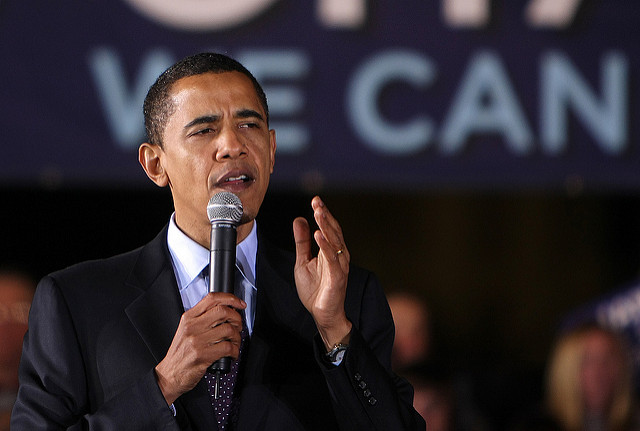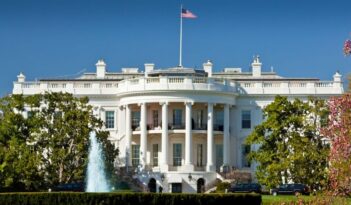
President Obama and Republican leaders debate health care, environmental regulation, and other regulatory issues.
Just as health care legislation dominated President Obama’s first two years in office, debates over government regulation more broadly may overtake Washington politics in the next two years. Last night’s State of the Union address – and the two Republican responses to it – gave every indication of political line-drawing, if not fracturing, in the political parties’ views on government’s role in regulating business.
President Obama did reinforce the message of “balance” that he tried to set last week in a Wall Street Journal op-ed about regulatory policy announcing a government-wide review of old regulations. In his State of the Union address, he called for fixing “rules that put an unnecessary burden on businesses” in an effort “to reduce barriers to growth and investment.” But at the same time, he vigorously defended what he termed “common-sense” regulation, arguing that he “will not hesitate to create” new rules if needed “to protect the American people.” He singled out environmental, food safety, consumer protection, and financial regulations as examples of the types of new rules he will continue to support.
In their responses to the President’s address, Representatives Paul Ryan (R-WI) and Representative Michelle Bachmann (R-MN) argued for reducing regulatory burdens and restricting the size of government. Ryan, delivering the main Republican response, decried all of the “taxes, penalties, mandates and fees” that he argued are stifling economic growth. He called for the nation to return to “limited government, low taxes, reasonable regulation and sound money.”
In her response on behalf of Tea Party members, Bachmann echoed Ryan’s call for limited government, arguing that the only way to spur growth in the manufacturing sector is by “reducing the tax and regulatory burdens on job creators.” She specifically called on President Obama to “turn back some of the 132 regulations put in place in the past two years, many of which will cost our economy $100 million or more.”
Nowhere did the difference between the president and his Republican respondents prove starker than over the new health care law. Obama lauded the law, which he considers one of his greatest successes, for preventing health insurance companies from denying coverage to patients because of their preexisting conditions. Ryan, in contrast, called the law “a new open-ended health care entitlement” that “is accelerating our country toward bankruptcy.” Similarly, Bachmann said that the law’s repeal was necessary to prevent “a devastating impact on our national debt for even generations to come.”
President Obama did acknowledge the Republican opposition to the health care law – reflected most notably in the House approval last week of its repeal. He expressed a willingness to consider changes provided they would not compromise the law’s core principles.
Last night’s speeches also revealed fault lines over environmental regulation. Bachman accused the EPA of destroying jobs by imposing a cap-and-trade system for greenhouse gases, while Obama not only defended “common-sense” air pollution regulations but also focused on the need for government to promote clean energy technology.
Although not mentioned in Obama’s speech, earlier in the day the President’s top energy and climate advisor, Carol Browner, announced her resignation. Some observers interpret her resignation as a possible sign that the Obama Administration will retreat from a regulatory approach to climate change, perhaps choosing subsidies as its primary way to promote advances in clean energy. However, Obama did state in his speech that “clean energy breakthroughs will only translate into clean energy jobs if businesses know there will be a market for what they’re selling.” It remains to be seen whether the Administration views grants and tax incentives as the primary vehicle for building that market for clean technology, or whether that market will better come about from the climate rules EPA has proposed under the Clean Air Act.
Browner’s resignation does certainly add another signal that the Administration will be more sensitive to calls for business-government collaboration and efforts to harmonize and streamline government regulation. In his address last night, Obama also announced he will freeze the discretionary portion of the federal budget that funds almost all of the government’s regulatory agencies.
The President decried overlaps in agency jurisdictions, pointing to instances where multiple agencies have been charged with regulating the same basic problems. He announced that his administration “will develop a proposal to merge, consolidate, and reorganize the federal government” to reduce waste, and that he will then take that plan to Congress for approval. Although he provided few details on what his plan will contain, if the Republican responses to last night’s speech are any guide, it is likely that his reorganization plan will serve to continue the debate over the scope of government regulation.
The photograph of President Obama is used unaltered under a Creative Commons license.



